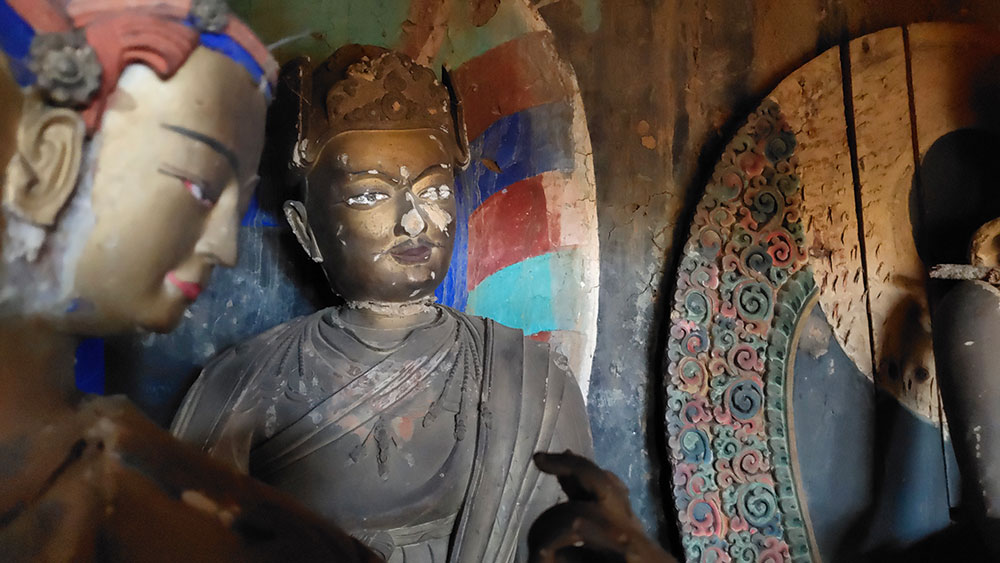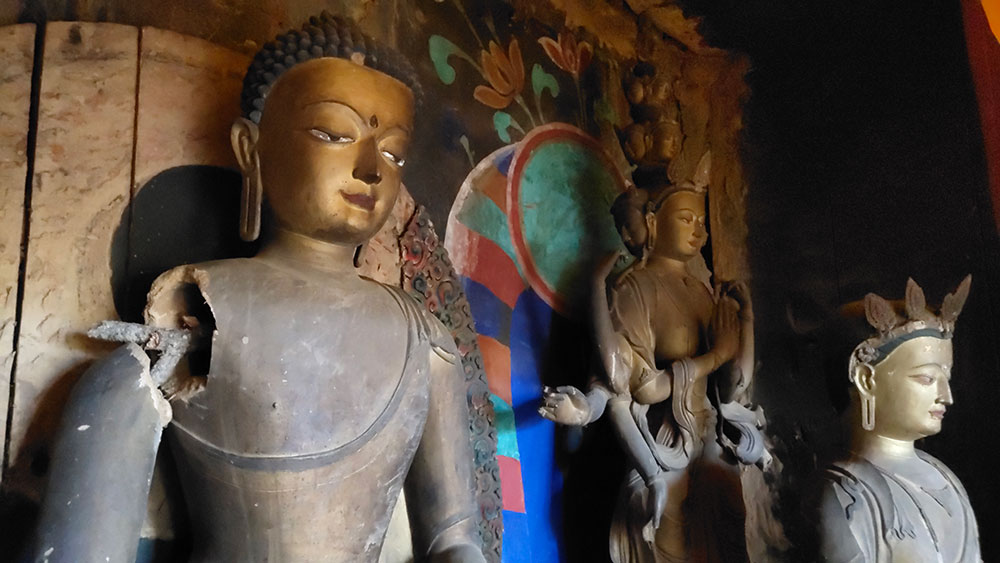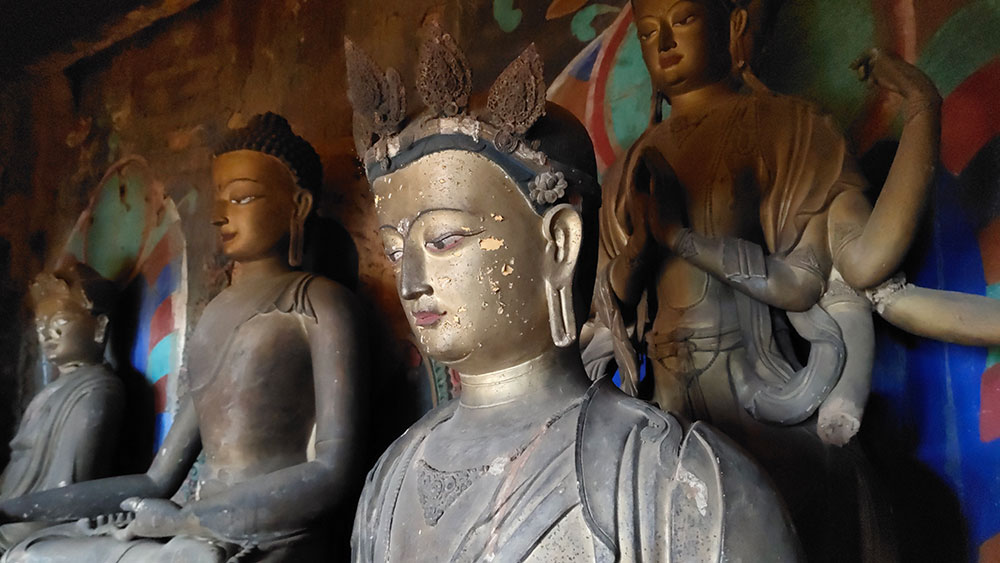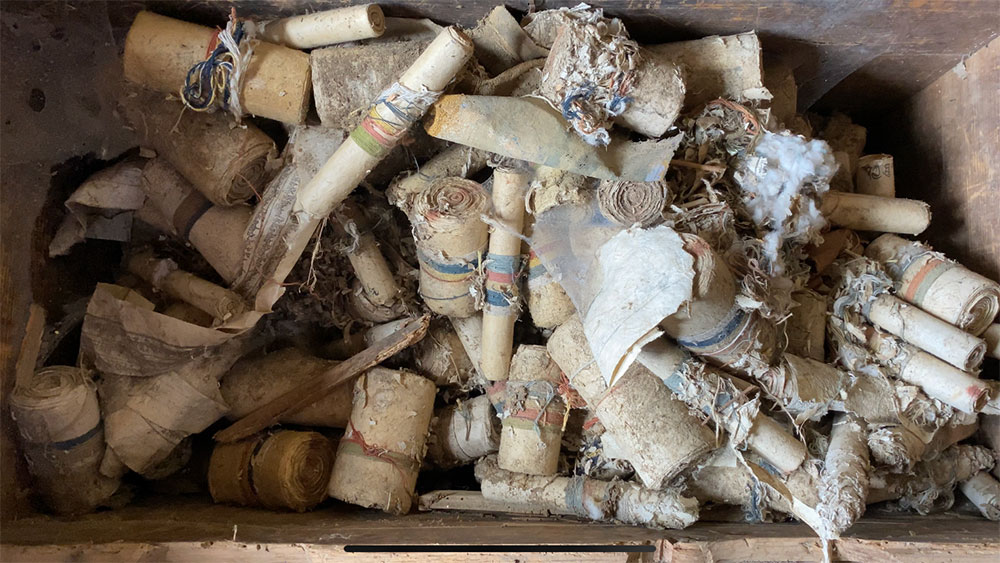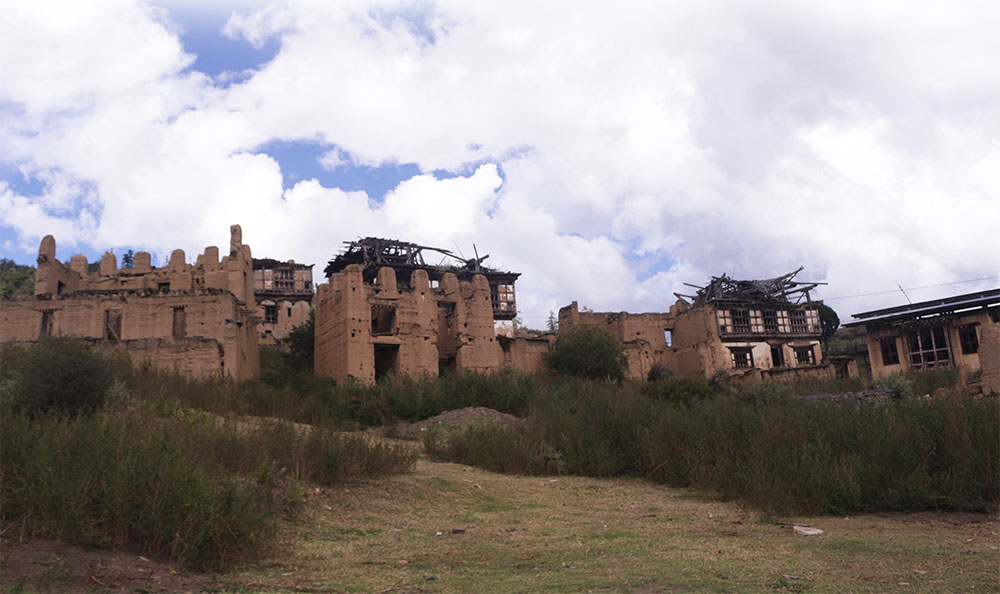Jigme Wangchuk
Tenchhekha, Paro – When the sun goes down, the massive ruins take on an aura not of this world. The abandoned houses, eerie silence, broken windows and falling shingles lend this far out of the way village a surreal appearance. From high up in the clouds, one can see the dreamy Pacchu snaking languidly in silver light far down in the shrouded valley.
Once a thriving village and home to master artisans famed and fabled for exquisite and expensive gold, silver, copper and other metal works is today a deserted village. Some say only the spirits and ghosts of the long-dead residents inhabit these tall and mighty relics of the past.
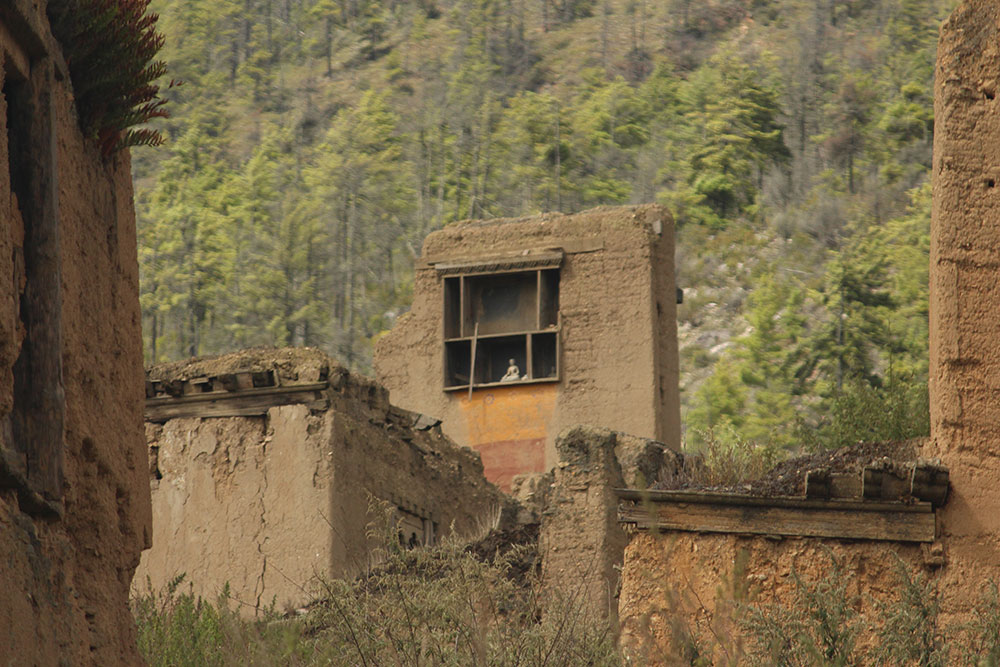
The village lhakhang is today home to stray animals. Statues are all broken by vandals and thieves. Scriptures and paper relics are stored in a rotting box.
Fifty-two-year-old Thinley Dorji has been the only permanent resident of Tenchhekha for almost a decade. He himself returned to Tenchhekha only in 2012. The empty hills and dales are his companions, shrill winds of cold winter his song. In summer cattle herders from Dawakha come. When they are gone after a short stay in these hills, he is left alone again.
“A ghost village?” Thinley rolls his eyes. “Water, the lack of it, is the main problem.”
Water shortage was a problem in the village even before Thinley Dorji was born. But Tenchhekha was a flourishing village with more than 18 households even then. In winters when children came home from schools in Thimphu and Paro, there would be a big village feast. There would be bonfires, songs and dances. Celebrations went on for weeks.
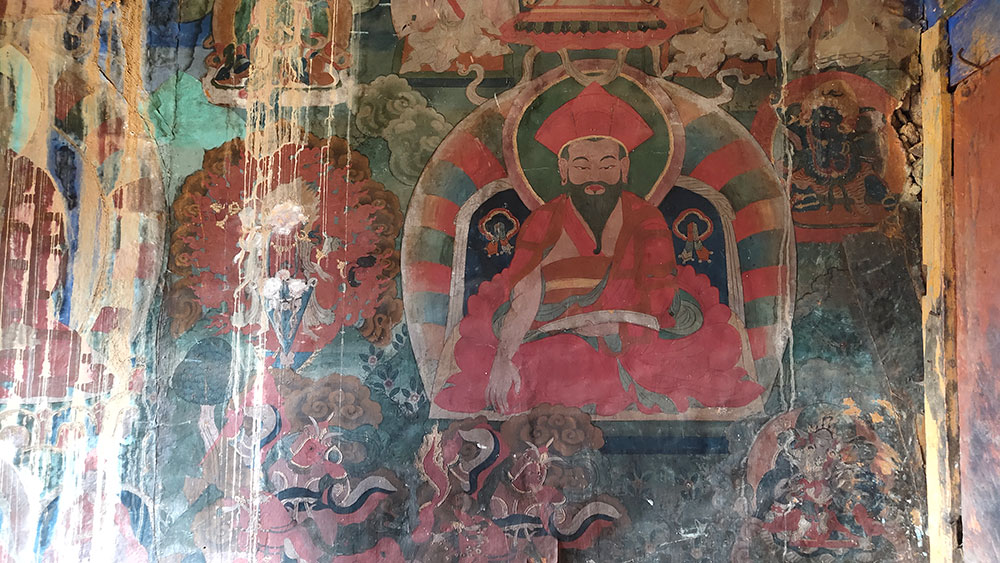
But then, the village well began to dry. His Majesty Jigme Dorji Wangchuck granted land kidu to the people of Tenchhekha. About eight households settled in villages like Jamdo and Kharibji near Khasadrapchu. Education and career opportunities pulled the people out of the village. Slowly, men and talent left the village for good.
Although many have bought land in and around the village because of prospective development, there are only four households in Tenchhekha today.
“It’s a village that the country’s development plans missed,” says Tshering who returns to Tenchhekha occasionally from Thimphu. “Not a single development plan has come to the village since I was a kid.” Tshering and Thinley grew up together and are best friends.
Frustrated, the villagers collected Nu 1.2 million and constructed a road to the village from the highway, across Pachhu. And they brought water from Goensakha, eight kilometres away from Tenchhekha. Each household contributed Nu 17,000 to bring water to the village which is barely enough for four households.
Local leaders and politicians have come and gone. Many promises were made to the people of Tenchhekha. There would be paved roads and enough water, they said. Villagers were told to conduct a water survey. Villagers contributed Nu 2,500 each and conducted a survey for seven days to bring water from Bjela only to be told that the government has no budget for it. There was also a plan to bring water from Genekha which came to naught.
Then they were promised a road from Khari Sum Tse (Char Kilo). Tshering struggled to get a clearance for about a year only to be told that there was neither a plan nor budget for the construction of the road. The villagers collected Nu 33,000 each and started the construction of the road. With fresh cuts and loose soil, it’s a difficult road in summer.
“We are neglected by the gewog, dzongkhag, and the government,” said Thinley. “We don’t trust the politicians anymore and we are nobody’s constituents. What is good for the village, we will do ourselves. We don’t need anybody’s help.”
The gewog administration of Dogar says the dzongkhag has no plans and budget for Tenchhekha.
According to village lore, Tenchhekha sits on the hearth of the Lu (Naga), which is why there is acute shortage of water. It is also said that when the ragged madman from Tibet came to the village while on his way to Toeb Chandana, he promised enough water in the village. When he returned, alas, there was no wine and women waiting for him! Lack of water in Tenchhekha, some say, is Drukpa Kuenley curse.
